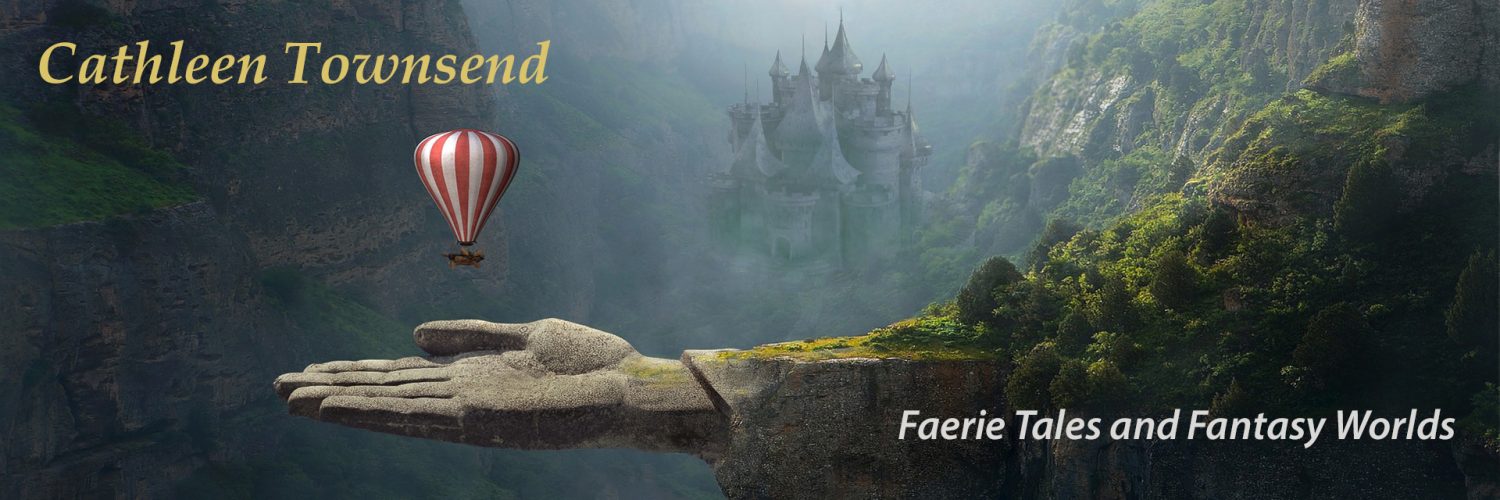Rose’s gaze kept drifting toward the barn as she and Jean-Pierre groomed the horses. “I just can’t believe it,” she said finally. “We have a brownie or leprechaun or something magic anyway, actually living in our hayloft.”
The sun caught Jean-Pierre’s wavy brown hair, so incongruous with his angular features and dark eyes, and he smiled. “My father’s people have legends of such as he, although we call them Paissa.”
Rose leaned against the split-rail enclosure. “What do the tales say?”
“They are much like yours. Do not offend, for their humor can be unkind, but the Paissa often repay good deeds.”
Rose gave him a cross look. “That’s not much of a story.”
Jean-Pierre laughed. “I was always better at hunting than story-telling. I never learned any Paissa tales. But I do know another, and it deals with matters outside our normal experience. Would you like to hear that one?”
Rose smiled. “Much better. Maybe I’ll get some hints on how to deal with this.”
Rose could see her smile reflected in his eyes as he said, “Perhaps. Although I am certain you would figure something out regardless.
“Among my father’s people, family is everything, and one boy had the misfortune to be an orphan. The tribe saw to it that he was fed and clothed, and he listened eagerly to the tales of great warriors around the fire. But there are things which only your family teaches you. Things he never had a chance to learn. So he had a harder time than most when he grew to be a man.”
“What do you mean?” Rose asked.
“His courage was good, but he had trouble in the hunt. He did not have a father to teach him all the small tricks that can make the difference between a successful hunt and going hungry. He and his wife were not invited to many weddings or feasts. He was somewhat apart from the others in his tribe, and that is an unhappy state.”
Rose nodded solemnly. Jean-Pierre had been apart, too, because he was a half-breed. No wonder he’d learned this tale.
“One day when the man was hunting, he killed a deer. But the sun was going down, so he built a rough shelter to spend the night. He roasted some venison and smoked his pipe, pleased with his success.
“He dozed off, but shook his head in amazement when he opened his eyes for he saw a man standing before him. He hadn’t heard a single footfall. And then the man vanished.”
“How could he do that?” Rose demanded.
Jean-Pierre smiled. “I’m getting to it. The man rubbed his eyes, and now there were two men present. They made no threatening moves, and neither of them spoke. But the man was afraid. What manner of men appeared and disappeared in that way? He had no idea what to do.”
Rose completely sympathized. She wouldn’t know what to do either.
“The man finally did the only thing he could think of—he told them that he was an orphan, and nobody had taught him what should be done in a situation such as this. But by the fires, he’d heard that ghosts liked to be offered part of a hunter’s kill.
“So the man asked, ‘Are you ghosts? Shall I roast some of this meat for you?’
“The two smiled at him, and one of them nodded. So the man roasted the meat over the coals, like in the tale he’d heard. He set out the meat and some tobacco from his pouch, and then he went to sleep, for he was very weary.”
“How could he go to sleep just like that?” Rose said. “If I met a ghost, I don’t think I could sleep.”
“Fear itself can be wearying,” Jean-Pierre said, “and the man had hunted long hours that day. When he woke, the two men were gone, taking with them the meat and tobacco. By the light of day, he could see that he had spent the night in an old cemetery. It was forgotten and neglected, which was why he hadn’t been able to tell the night before.
“He offered prayers for the dead, and he promised them that he would make them known again, at a feast, if he could catch enough game to provide it.
“That day on the way home, the man killed four bucks. When he returned to his tent, he told his wife all that had happened, and that she must prepare the feast for the ghosts.”
Rose shook her head at the idea of Jean-Pierre dropping in after a hunt and blithely telling her to spend the day cooking for spirits.
A gleam of humor in Jean-Pierre’s eyes showed that he’d followed her thoughts. “After that, the man sought out one of the elders of the tribe. He told him he didn’t know how to give a feast for the dead, but that he wanted to do it in a proper fashion, and he asked the elder’s advice.”
Rose nodded at that. If anything so peculiar ever happened to her, she would definitely ask Da what to do. Although he was as puzzled as she was concerning their guest in the hayloft.
“The elder commended the man for his actions, and he said the ghosts were a good sign. The elder even helped the man invite the tribe to the feast, and the former orphan told his tale, that the ghosts not be forgotten.
“And from that day, his luck changed. He became a great hunter, and other men treated him with respect. In time, he became one of the leaders of the tribe, but he never forgot to offer tobacco to the spirits of the two men who befriended him. And he told the tale so many times that it is still remembered today.”
Jean-Pierre sighed, and Rose laid a hand on his arm. “You are already a great hunter, Jean-Pierre, and you will always be respected by my family. You know that, don’t you?”
“Rose, are you sure,” he started, but Rose stomped her foot.
“Stop that. Besides, it doesn’t help us with our guest. If your story is any guide, we should offer him a feast. Maybe Mother would let me make a currant cobbler.”
Jean-Pierre smiled. “In that case, would you like to hear another story?”
Rose laughed and picked up the curry comb.
***
This is an additional scene to my novel, Bleeding Kansas Rose. I quite like that book, but you’ll have to be patient about reading it because it’s still with beta readers.
I apologize for using the term half-breed, but it’s a period-correct designation. It’s one of the downsides about writing historical. It was worse when I needed to use the n-word in my Thirties novel. I try to show that it’s an unhappy thing to be ostracized, in context. I mean no offense. Truly.
Jean-Pierre is fictional, but his father was an actual Potawatomi chief/elder. The ghost story is a real Potawatomi one, retold in my own words. You can find the original here: http://www.mpm.edu/wirp/ICW-137.html.





You don’t need to apologise for using the period-correct designation. It would sound wrong if you used something else.
LikeLiked by 1 person
Excellent writing. Look forward to more!
LikeLiked by 1 person
Thanks so much! 🙂
LikeLike
I was immediately drawn into the story and was a bit “Oh” its ended. I loved it.
LikeLiked by 1 person
Nice story! I’m still wondering about the “guest” in the hayloft lol
LikeLiked by 1 person
Me too! Who is the visitor in the hayloft? Riveting story. 😀
LikeLiked by 1 person
Great story! I almost burnt my cookies reading it 🙂
LikeLiked by 1 person
I don’t think an apology is necessary for using the right wording for the time period. I like to see authenticity, it makes the story come to life. This is a really good story, and it’s made me interested in your novel. I look forward to being able to read more. 🙂
LikeLiked by 1 person
Nice work! I want to read more!
LikeLiked by 1 person
what a fun peek into the world of your book! I bet your beta readers are enjoying it. 🙂
LikeLiked by 1 person
Thank you for sharing this snippet of your book with us! I like how you kept things true to the time period, makes me feel like I was there.
LikeLiked by 1 person
Thanks, everyone. I’m edgy about this novel. It’s partly about prejudice and how it affects lives. But that means I have to show it, and that can be misinterpreted. *shrugs*
LikeLike